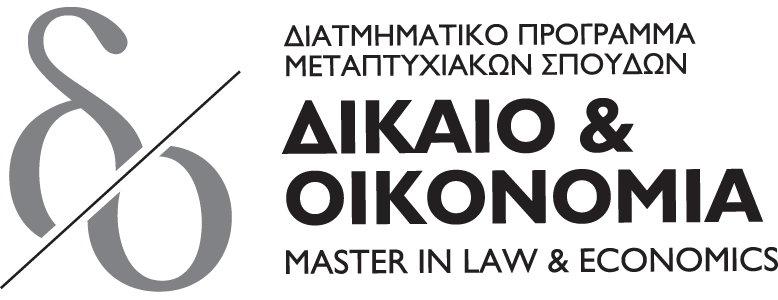The objective of the interdepartmental MSc programme – “Master in Law and Economics” is to train executives and improve their skills. It is aimed at executives who are working or intend to work in governmental organisations and enterprises, or the private sector in general, and wish to obtain high-level skills,
proportional to the needs of this specialisation, as well as develop a working knowledge of modern principles & methods of effective management of public organisations and businesses.
The profile of the programme has been shaped by the general standards which characterise both Greek and foreign higher education institutes, but also by the need that the content and focus of the programme correspond to the characteristics of the Greek economy.
The programme lasts 3 semesters and starts in September of each academic year. In the first and second semesters, lectures take place every Friday and Saturday. More days may be added, depending on the needs of the programme. In the third semester, lectures also take place on weekdays, due to the number of elective courses on offer.
The programme consists of:
- preliminary courses,
- mandatory courses and
- elective courses.
Elective courses are a broad category, from which students choose two, depending on which ones best fit their educational requirements and career prospects.
Obtaining the MSc Diploma
To obtain the Master’s degree the student must:
- To attend and pass ten (10) courses (mandatory and elective) in all three
- To prepare and defend a thesis in the third semester, or pass four (4) elective courses in addition to the two (2) elective courses required to obtain a diploma.
In general, to be awarded a Master’s degree, the student must accumulate 90 credits of the European Credit Transfer and Accumulation System (ECTS). This is achieved through the student’s participation in all of the programme’s research and educational activities, as defined in the programme’s regulatory document.






